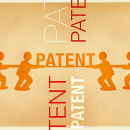Sick of Swiping: Gen Z and Millennials Prefer Real Life Events to Online Dating
Dating apps go all in for artificial intelligence, but to what end?

Apparently fed up with online dating, people under forty are turning to other less digital options.
A recent market research survey of 1001 youthful respondents (age 21-35) shows a distinct frustration with dating apps and a decided preference for singles events that speak to shared interests like cooking or games.
Eventbrite’s downloadable survey report, Niche to Meet You, highlights respondents’ safety concerns about dating profiles and their simple desires to have a good time with people whose company they enjoy. The report includes Eventbrite’s own data regarding 2023-2024 dating events and a survey conducted by GWI USA.
So it’s not surprising this demographic has begun choosing interest-based group activities over online dating platforms where it can be difficult to figure out if they’ve hooked a big one or may just have a catfish on the line.
It’s a strategy that also may help people to connect with activity partners, if nothing else.
Meanwhile, back at the apps
In the last year and a half, well-known dating apps such as Tinder, Bumble, Match.com, and OK Cupid, have turned to AI for help.
For example, in February 2023, OK Cupid announced its intention to add matching questions created by Chat GPT to its app, including “are you a morning person or a night person” and “what do you value most in a partner.”
TinderProfile.ai currently invites users to create “stunningly realistic dating pictures that show the best version of you” using AI image generation, and promises more matches as a result.
RECOMMENDED READ: Who’s Working for Whom? Bumble’s Founder Envisions “AI-Dating Concierges”
Then there are AI avatars that can go on dates while you, I dunno, stay home and wash your hair?
A recent MSNBC opinion piece expressed dismay when Bumble’s executive chair, Whitney Wolfe, said AI personas—avatars of Bumble users—“would be the next wave of dating.” The Bumble executive appears to endorse the practice of a person’s avatar, also known as an AI dating concierge, dating another person’s dating concierge—though the advantages of this strategy seem murky at best.
Iris favors visual attraction over compatibility algorithms
Meanwhile, Iris is an AI-based dating app which focuses on visual (aka “primary”) attraction. A promotional video featuring the app’s founder claims 22% of users feel hopeful after using a dating app, but far more (78%) feel frustrated. Note: Iris does not cite its research source.
To address this frustration, Iris focuses on the power of primary attraction that happens before knowing anything about a person, utilizing machine learning to match mutually attracted people by showing each user hundreds of random profiles and registering their likes. AI then crunches the data suggesting who they might find attractive. In other words, Iris puts visual attraction first and compatibility second.
Does it work better than other dating apps in finding matches? Who knows. But the app does emphasize safety and trust and appears to do a good job of weeding out fake profiles, by requiring users to submit a real-time selfie to validate their identity prior to creating a profile.
Swiping and filtering and real life—looking ahead
Let’s face it, creating an online dating profile is a chore. It can feel daunting, depressing, and many people simply don’t know what to say about themselves. AI could help with that. ChatGPT or another conversational AI assistant could write a profile and as long as it is simple and the items are true, there should be little problem with this. Using an image generator to enhance photos is more problematic—many people would consider this deceptive.
Whether they use AI assistance or not, dating apps are probably not going to go away anytime soon, no matter how frustrated people may feel. And the apps will probably continue to be important to marginalized people who might have fewer options for partners and who may also need an extra layer of safety for personal disclosures. In that case, an app that prioritizes safety, like Iris, would be helpful.
Millennial and Gen Z folx will probably continue to prefer real life singles and interest-related events to find dates. Will this trend spread to other age groups? If so, it might be wise for dating apps to emphasize activity partners rather than prospective romantic partners–or at least figure out how to make their sites more fun. And then let nature (with a little help from AI), take its course.
Images: A.R. Marsh using Ideogram.ai

















